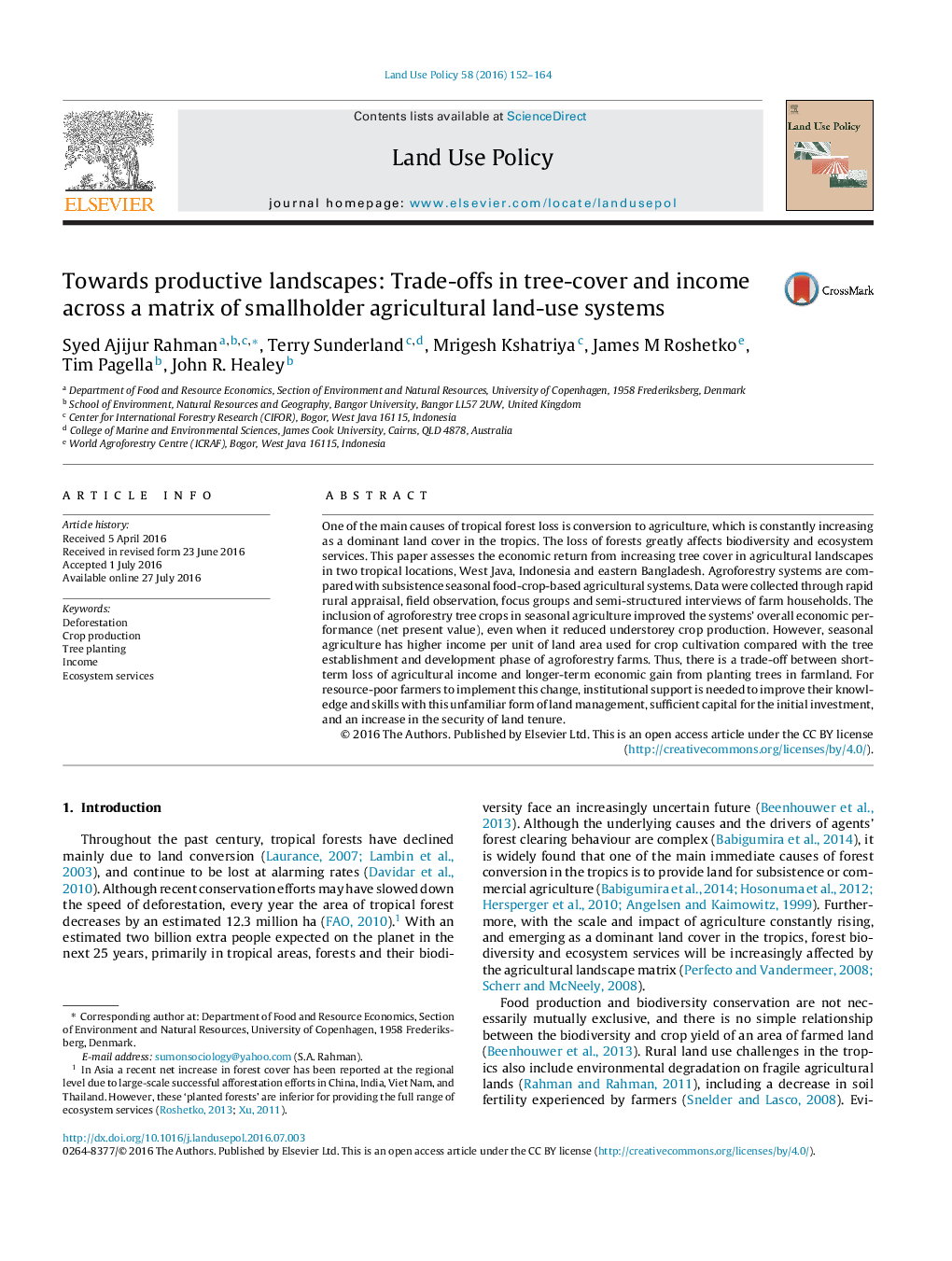| Article ID | Journal | Published Year | Pages | File Type |
|---|---|---|---|---|
| 6546862 | Land Use Policy | 2016 | 13 Pages |
Abstract
One of the main causes of tropical forest loss is conversion to agriculture, which is constantly increasing as a dominant land cover in the tropics. The loss of forests greatly affects biodiversity and ecosystem services. This paper assesses the economic return from increasing tree cover in agricultural landscapes in two tropical locations, West Java, Indonesia and eastern Bangladesh. Agroforestry systems are compared with subsistence seasonal food-crop-based agricultural systems. Data were collected through rapid rural appraisal, field observation, focus groups and semi-structured interviews of farm households. The inclusion of agroforestry tree crops in seasonal agriculture improved the systems' overall economic performance (net present value), even when it reduced understorey crop production. However, seasonal agriculture has higher income per unit of land area used for crop cultivation compared with the tree establishment and development phase of agroforestry farms. Thus, there is a trade-off between short-term loss of agricultural income and longer-term economic gain from planting trees in farmland. For resource-poor farmers to implement this change, institutional support is needed to improve their knowledge and skills with this unfamiliar form of land management, sufficient capital for the initial investment, and an increase in the security of land tenure.
Related Topics
Life Sciences
Agricultural and Biological Sciences
Forestry
Authors
Syed Ajijur Rahman, Terry Sunderland, Mrigesh Kshatriya, James M Roshetko, Tim Pagella, John R. Healey,
